
Race report: Was controversy part of the plan?
We spoke to former and current Conservative insiders, on condition of anonymity, to find out how the report had come together - and the way in which it was communicated to the media.
It's fair to say that the report by the Commission on Race and Ethnic Disparities, prompted by last year's Black Lives Matter protests, was not universally welcomed.
Among the critics were the race equality think tank the Runnymede Trust, the TUC, an NHS employers' group, a range of politicians and some of those involved in last year's protests.
Oh, and by implication, Sam Kasumu, too.
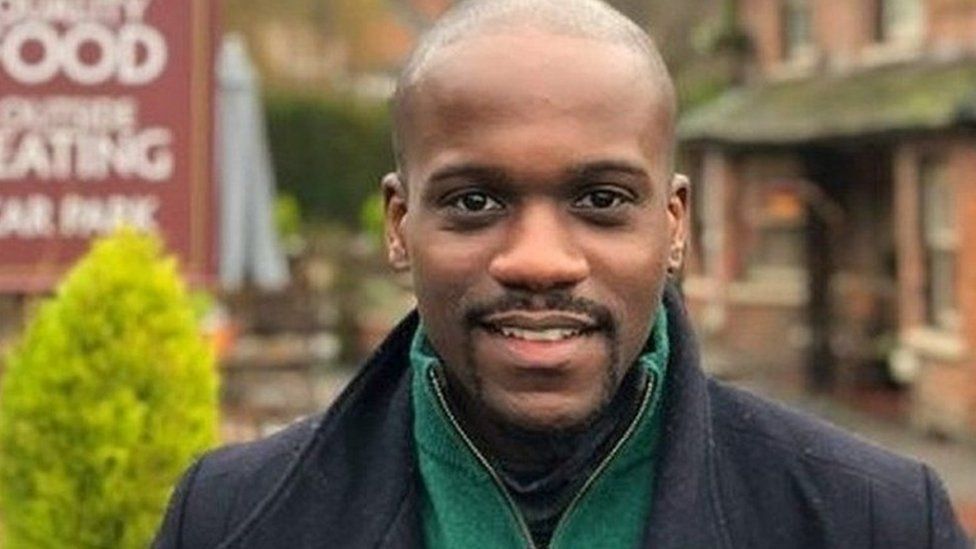
Those close to Mr Kasumu say he resigned as Boris Johnson's adviser for civil society and communities - with a remit to reach out to ethnic minority communities - in anticipation of the report hitting the media.
He was already known to be unhappy with the direction the government was going in on race.
He had tried to resign in February - but was persuaded to stay on so that he could help vaccines minister Nadhim Zahawi in the campaign to encourage more people from ethnic minority backgrounds to get a Covid jab.
In his original resignation letter, that was later rescinded, he talked of his fears for "what may become of the (Conservative) party in the future by choosing to pursue a "politics steeped in division".
And sources inside Downing Street say that in the time between that letter being retracted, and his actual resignation, an "awkward silence" had descended - with little discussion or engagement on the issues that he raised.
So did the government get its messaging wrong when it published the report this week or was the backlash in some quarters the result of a deliberate strategy?
'Uncomfortable debate'
The commission's report runs to 258 pages, but some conclusions had been briefed to the media in advance of its publication on Wednesday.
These included a call to ditch the commonly-used acronym BAME (black and minority ethnic) and data on the improving educational attainment of people from most ethnic minority backgrounds.
But perhaps the most controversial finding, and the one that grabbed the most headlines, was that the UK was not institutionally racist.
One source we spoke to praised the handling of the report "from a comms perspective".
He said No 10 knew that a row was going to be inevitable so by briefing key elements of a contentious report in advance, it had allowed that row to take place on the government's terms.
"The government knows how uncomfortable it is for Labour to have those debates," said the source. "Some people feel their history and culture is being trashed by the Left."
Is Britain a racist country?
There were many non-contentious recommendations in the report, and a lot of nuance, he added.
But the initial communications strategy had not focused so much on what needed to change, rather on posing the question - is Britain a racist country?
The report found that while there was racism, the answer to that question was "no", and that that would make people feel proud not ashamed of progress that had been made.
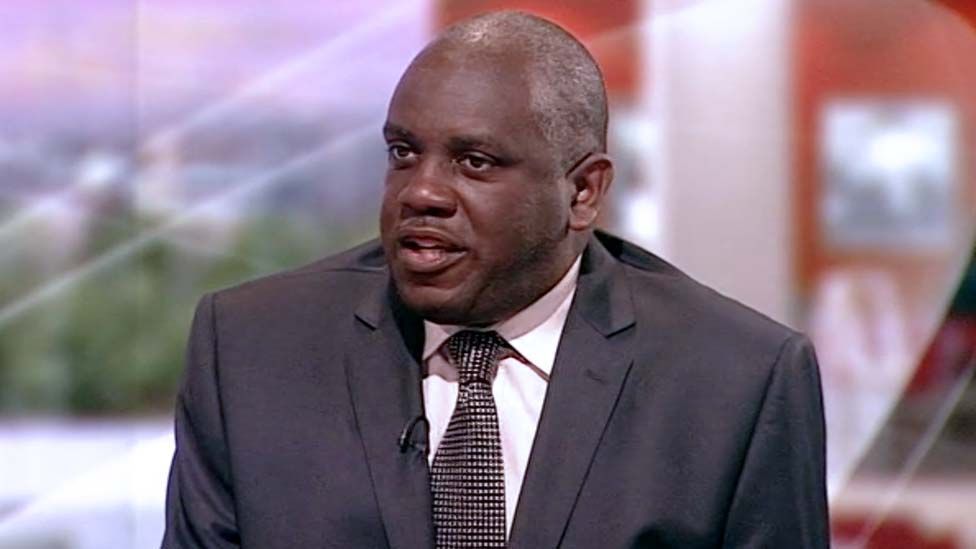
The commission's chairman Tony Sewell put it like this: "We no longer see a Britain where the system is deliberately rigged against ethnic minorities.
"The impediments and disparities do exist, they are varied, and ironically very few of them are directly to do with racism.
"Too often 'racism' is the catch-all explanation, and can be simply implicitly accepted rather than explicitly examined."
Labour politicians, our source suggested, were being tempted to disagree - and trapped into denouncing "structural racism".
'Moths around the flame'
This, in turn, could allow the Conservatives to suggest the opposition was "talking the country down" and had not moved as far away from the Corbyn era as the new leadership, under Sir Keir Starmer, claimed.
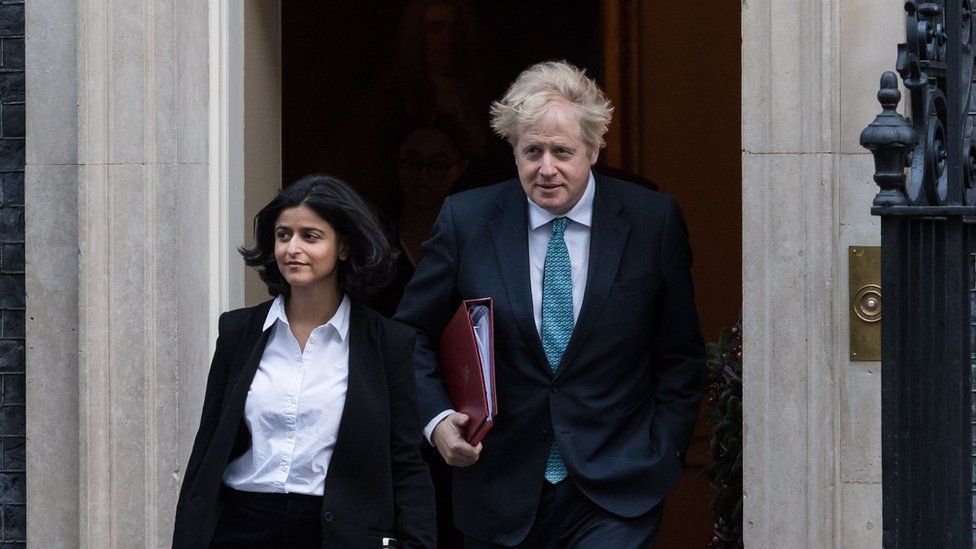
Many of the commissioners, who had helped put the report together over the past 10 months, urged people to see it in the round - and to take on board its 24 recommendations.
These included beefing up the Equality and Human Rights Commission to challenge policies or practices that cause significant and unjust racial disadvantage, or arise from racial discrimination.
The report also called on the government to tackle online abuse as a matter of urgency.
One of the 11 commissioners, Keith Fraser - a former police superintendent, and chair of the Youth Justice Board for England and Wales describes the reaction to some aspects of the report as "like a torch" being lit.
"There were moths around the flame, running towards it. They (the critics) didn't look either side of the light. They need to turn on the fluorescent light and illuminate the whole room."
But the initial terms of the debate, via the very focused beams of light in briefings to the press, were set by government in advance - a technique known in politics as "getting your retaliation in first".
Expectation of success
But what of the substance of the report? As one insider put it: "It isn't just a press release."
The plan of a commission had been announced by the prime minister last June, after the Black Lives Matter protests and the "statue wars".

At the time, Boris Johnson had said: "We have to look at discrimination but what has slightly been lost in this is the story of success.
"What I want to do as prime minister is change the narrative so we stop the sense of victimhood and discrimination, we stamp out racism... and we start to have a real expectation of success."
Statements like this had led critics inside Mr Johnson's own party - and inside government - to suggest that some of the conclusions of the report were, in effect, determined in advance - particularly the claim that the system is not deliberately rigged against ethnic minorities.
The commission was set up by Munira Mirza, Mr Johnson's policy chief, who had been deputy mayor for education and culture when he was mayor of London.
She had previously questioned the notion of institutional racism.
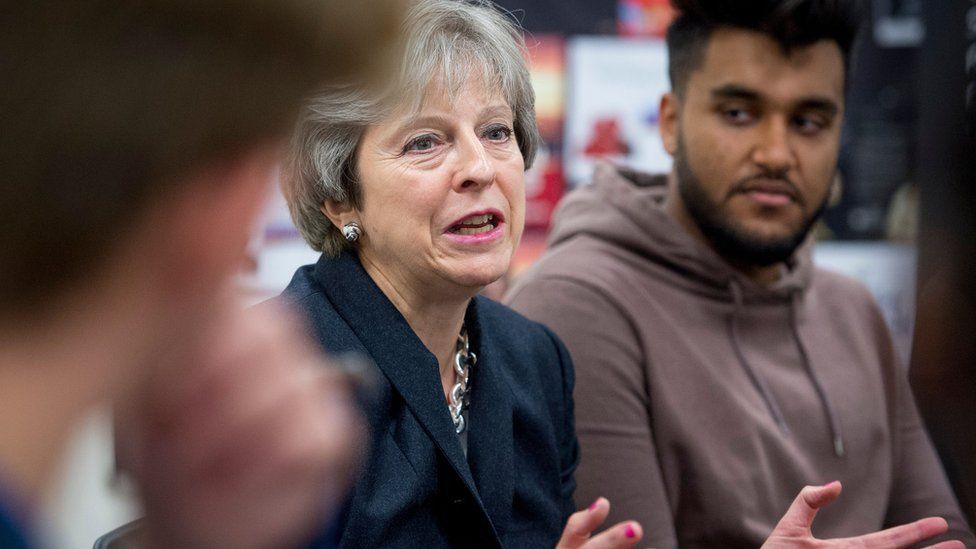
When Theresa May, as prime minister, set up a racial disparities audit, Ms Mirza was quoted as saying: "It reinforces this idea that ethnic minorities are being systematically oppressed, that there's a sort of institutional problem, when in fact what we've seen in the last 20 years is a liberalisation, an opening up for many people."
An independent report?
She suggested the educationalist - and former teacher - Tony Sewell should chair the commission, and the prime minister formally asked him to do so.
Mr Sewell, too, had questioned the existence of systemic racism in the UK.
In a 2010 article for Prospect magazine, he suggested that "much of the supposed evidence of institutional racism is flimsy".
One source told us: "This was not an independent report as such. It was very much driven by Munira."
Another said: "This isn't even the 'Downing Street' view. There are different views across No 10.
"These views are those of a faction - Munira and her husband Dougie Smith in particular. They wanted to turn the assumption of Theresa May's disparities audit on its head.
"Don't get me wrong - Theresa's audit wasn't totally without cynicism. She wanted to portray herself as a One Nation Tory.
"But this report was really a reaction to BLM with a foregone conclusion.
"Boris was dealing with a political problem, reacting to BLM - he hasn't really deeply considered this."
Others, though, disagree.
One source said that Boris Johnson was attracted to Munira Mirza's way of thinking because he is an "optimistic, sunlit upland guy" and wanted, for example, the successes of those from ethnic backgrounds to be celebrated.
'Fatalistic narrative'
But it also goes much deeper than that, they suggested.
While the Left "emoted" on race, the prime minister wanted a data-driven report.
And if there was success for some groups in the education system, for example, that should be set out, not buried.
The thinking was that to improve the life chances of people from ethnic minority backgrounds, they had to be told what they could achieve.
Otherwise, if they were led to believe that the odds were completely stacked against them from the start, and that there was little they could do about it, they may not have the incentive to try.
It's what Tony Sewell described as a "fatalistic narrative".
But Boris Johnson also wanted the complex nature of disadvantage to be recognised and practical proposals to deal with problems where they were actually occurring.
The report's foreword says: "The evidence shows that geography, family influence, socio-economic background, culture and religion have more significant impact on life chances than the existence of racism."
'Not a stitch-up'
And one of the commissioners, Keith Fraser, is annoyed at the suggestion the findings were a foregone conclusion.
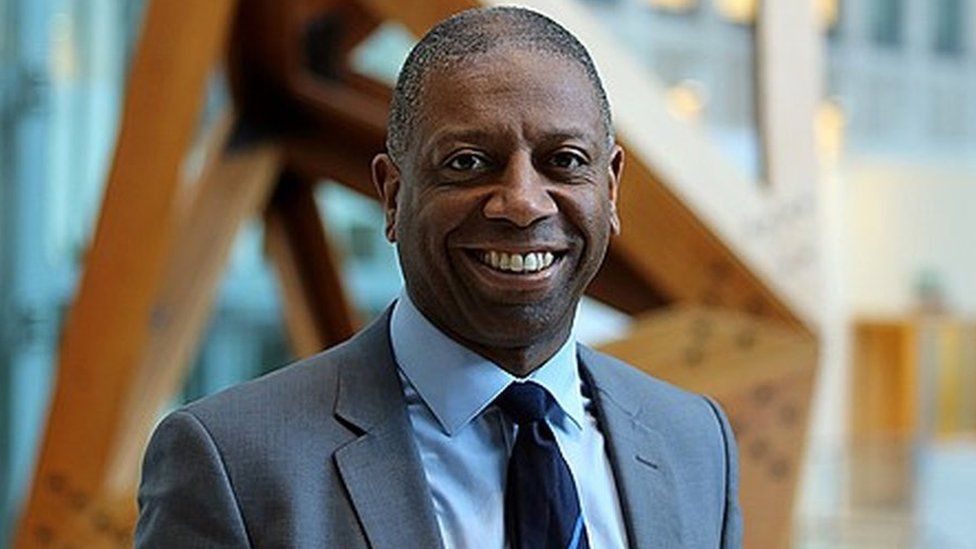
He told the BBC: "It irritates me when people call it a stitch-up.
"It was really challenging and we challenged each other. If it is was a stitch-up, I wouldn't have been involved in it. That is absolute rubbish - and you can underline that.
"The commission came to this amongst an awful lot of debate, around the death of George Floyd and Black Lives Matter, but it was a journey, not just about that, but about the decades before.
"I don't think there is anybody out there who can say the UK hasn't changed and changed for the better, but we mustn't think that the job is done.
"We are not saying we are in utopia, running around the garden, but the point is to capitalise and leap forward."
Conservative critics
Nonetheless, there are critics of the commission's report within senior ranks of the Conservative Party.
One veteran of Theresa May's audit of disparities welcomed the report's embrace of the complexity of disadvantage.
But his concerns were that the report tipped over into suggesting that some people's experience of racism was being seen as not true, or exaggerated.
He argued that some of the most disadvantaged people do believe, rightly or wrongly, that they live in a racist country.
That is their "lived experience", he added, and to take them on a "journey" you need to realise where they are starting from.
Another Conservative source said "we know inequality is complicated", but the report was "tone deaf" on issues such as slavery - described in a paragraph about the "Caribbean experience".
And this would not help tap a potential reservoir of support from people from ethnic minority backgrounds who may broadly share conservative values, but don't yet trust the Conservative Party.
In his rescinded resignation letter, the now former adviser Sam Kasumu seemed to share those views.
White working class
But with Boris Johnson hoping to continue to retain support in the seats he won from Labour in the 2019 election, some of those advising him say it is essential that he is seen to address the disadvantage suffered by those from white working class backgrounds.
People in this group might be struggling in education - and in getting into the jobs market - every bit as much as counterparts from ethnic backgrounds.
In this respect the report is helpful to the PM, with chairman Tony Sewell writing in the foreword: "Another revelation from our dive into the data was just how stuck some groups from the white majority are.
"As a result, we came to the view that recommendations should, wherever possible, be designed to remove obstacles for everyone, rather than specific groups."
And one source told us: "The government is quite happy having these culture debates.
"Getting a discussion around this report is what the government was trying to do."
Well, whatever else it has achieved, it has certainly generated that.
'Misrepresentation'
Following the backlash against the report, the commission has sought to "set the record straight".
In a statement released late on Friday, it said: "The facts and analysis we presented challenge a number of strongly held beliefs about the nature and extent of racism in Britain today.
"Sadly, however, in some cases fair and robust disagreement with the commission's work has tipped into misrepresentation."
The commission said it had "never said that racism does not exist in society or in institutions".
"We say the contrary: racism is real and we must do more to tackle it," the statement said.
"Robust debate we welcome. But to depict us as racism deniers, slavery apologists or worse is unacceptable."
The commission did not "find conclusive evidence" that institutional racism exists in the areas it examined, the statement added, but the report stresses that "both the reality and the perception of unfairness matter".
The commission said it hoped the report would be "read carefully and considered in the round".










